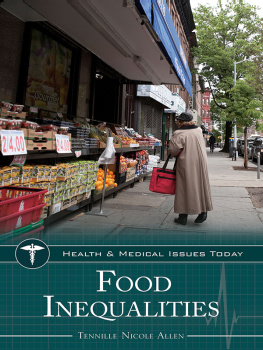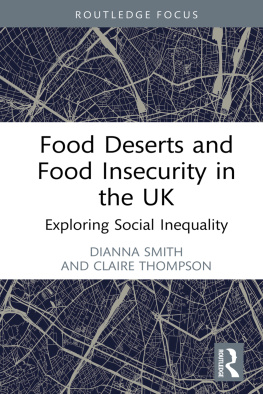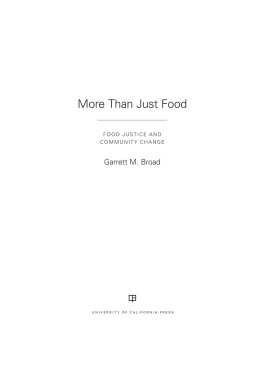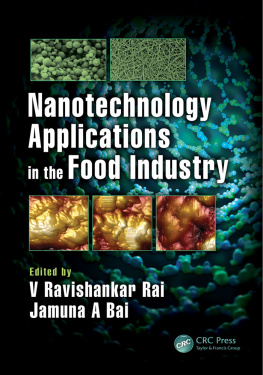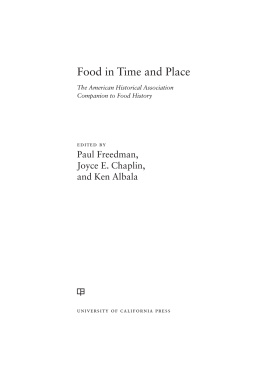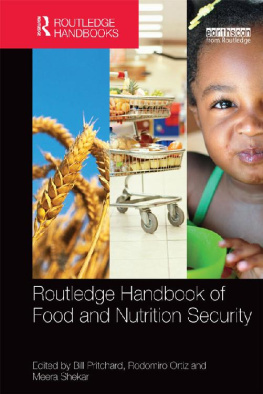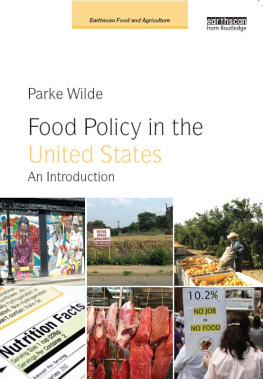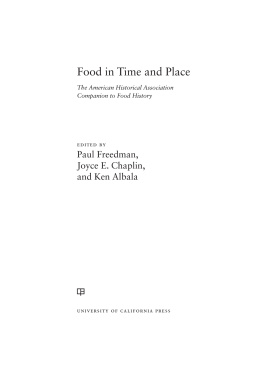F OOD I NEQUALITIES
Recent Titles in
Health and Medical Issues Today
Concussions
William Paul Meehan III
Drug Resistance
Sarah E. Boslaugh
Work-Life Balance
Janice Arenofsky
The Body Size and Health Debate
Christine L. B. Selby
Obesity, Second Edition
Evelyn B. Kelly
Infertility Treatments
Janice Arenofsky
Assistive Technology for People with Disabilities
Denis K. Anson
Transgender Health Issues
Sarah Boslaugh
The Vaccine Debate
Tish Davidson
Stem Cells, Second Edition
Evelyn B. Kelly
Prescription Drug Abuse
Robert L. Bryant and Howard L. Forman
Universal Healthcare
Claudio Buttic
Genetic Testing
Sarah Boslaugh
Internet Addiction
Kathryn Vercillo
F OOD I NEQUALITIES
Tennille Nicole Allen
Health and Medical Issues Today

Copyright 2021 by ABC-CLIO, LLC
All rights reserved. No part of this publication may be reproduced, stored in a retrieval system, or transmitted, in any form or by any means, electronic, mechanical, photocopying, recording, or otherwise, except for the inclusion of brief quotations in a review, without prior permission in writing from the publisher.
Library of Congress Cataloging-in-Publication Data
Names: Allen, Tennille Nicole, author.
Title: Food inequalities / Tennille Nicole Allen.
Description: Santa Barbara : ABC-CLIO, 2021. | Series: Health and medical issues today | Includes bibliographical references and index.
Identifiers: LCCN 2020043402 (print) | LCCN 2020043403 (ebook) | ISBN 9781440864308 (hardcover) | ISBN 9781440864315 (ebook)
Subjects: LCSH: Food supplyGovernment policyUnited States. | Food supplyUnited States. | EqualityUnited States.
Classification: LCC HD9006 .A785 2021 (print) | LCC HD9006 (ebook) | DDC 338.1/973dc23
LC record available at https://lccn.loc.gov/2020043402
LC ebook record available at https://lccn.loc.gov/2020043403
ISBN: 978-1-4408-6430-8 (print)
978-1-4408-6431-5 (ebook)
252423222112345
This book is also available as an eBook.
Greenwood
An Imprint of ABC-CLIO, LLC
ABC-CLIO, LLC
147 Castilian Drive
Santa Barbara, California 93117
www.abc-clio.com
This book is printed on acid-free paper 
Manufactured in the United States of America
This book is dedicated to all of those working on and in the ground to ensure that we move from food apartheid and food injustice to food sovereignty and food justice.
C ONTENTS
Every day, the public is bombarded with information on developments in medicine and health care. Whether it is on the latest techniques in treatment or research, or on concerns over public health threats, this information directly affects the lives of people more than almost any other issue. Although there are many sources for understanding these topicsfrom Web sites and blogs to newspapers and magazinesstudents and ordinary citizens often need one resource that makes sense of the complex health and medical issues affecting their daily lives.
The Health and Medical Issues Today series provides just such a one-stop resource for obtaining a solid overview of the most controversial areas of health care in the 21st century. Each volume addresses one topic and provides a balanced summary of what is known. These volumes provide an excellent first step for students and lay people interested in understanding how health care works in our society today.
Each volume is broken into several parts to provide readers and researchers with easy access to the information they need:
provides overview chapters on background informationincluding chapters on such areas as the historical, scientific, medical, social, and legal issues involvedthat a citizen needs to intelligently understand the topic.
provides capsule examinations of the most heated contemporary issues and debates, and analyzes in a balanced manner the viewpoints held by various advocates in the debates.
provides case studies that show examples of the concepts discussed in the previous parts.
A selection of reference material, such as a directory of organizations and a bibliography, serve as the best next step in learning about the topic at hand.
The Health and Medical Issues Today series strives to provide readers with all the information needed to begin making sense of some of the most important debates going on in the world today. The series includes volumes on such topics as stem-cell research, obesity, gene therapy, alternative medicine, organ transplantation, mental health, and more.
As the 2019 novel coronavirus (COVID-19) disease began its spread in the United States, it soon became clear that in addition to a health crisis, it would create and deepen food crises and inequality. In addition to health concerns, COVID-19 has created numerous food-related concerns, including those surrounding access, supply, and employment. COVID-19 has meant that many children have been unable to access free and reduced lunches at their schools. Many farmers fields have lain fallow. Some farmworkers have lost employment, while others are forced to work longer hours under increasingly unsafe conditions. Farm and processing workers are compelled to go to work, whether sick or well, for fear of losing needed hours and missing out on COVID-prompted, promised perfect-attendance bonuses. Some fast-food workers have been told they may not wear masks, and others have been verbally harassed or physically assaulted by customers who refuse to follow government rules and company policy and put theirs on. Contingent workers have had to go grocery shopping or make restaurant deliveries for those able to shelter in place. Untold numbers of people have lost income that would have gone to food. They join those who have had to stand in line for hours to get food from the declining number of open food pantries and soup kitchens. And this has all been in just the early stages of the pandemic.
A March 2020 report from the Food Chain Workers Alliance (FCWA) entitled What Food Workers on the Front Lines Need Right Now discusses the vulnerabilities of food workers during the COVID-19 crisis. The report supports the long-held assertions of food workers, their allies, and activists on the importance of their work. Still, in the United States, these workers lack many vital health, economic, and other protections that many nonessential workers continue to enjoy even as they work from home. Through the crisis, food workers are forced to work in very close proximity to others and are not assured the ability to practice social distancing. They often are given inadequate to no supplies such as running water, soap, hand sanitizer, and protective equipment. There has also been a lack of guidance and implementation of safety protocols to limit their exposure to COVID-19. Food workers working conditions did not shift to offer them the pay, protections, or benefits, such as health care and paid leave, that would have been commensurate with the importance of their labor.
At the same time, many food workers in the restaurant and other parts of the hospitality industry have lost their jobs in the wake of businesses closing their doors to halt the spread of COVID-19 or as declining revenues forced them to do so. Those restaurant and other hospitality workers who remain employed have seen their wages and tips significantly reduced as patrons dwindle and service models switch from dining-in to take-out. The FCWA further highlights the particularly marginalized position of food workers in the informal labor market who do not enjoy even the meager labor protections offered in the formal labor market.

